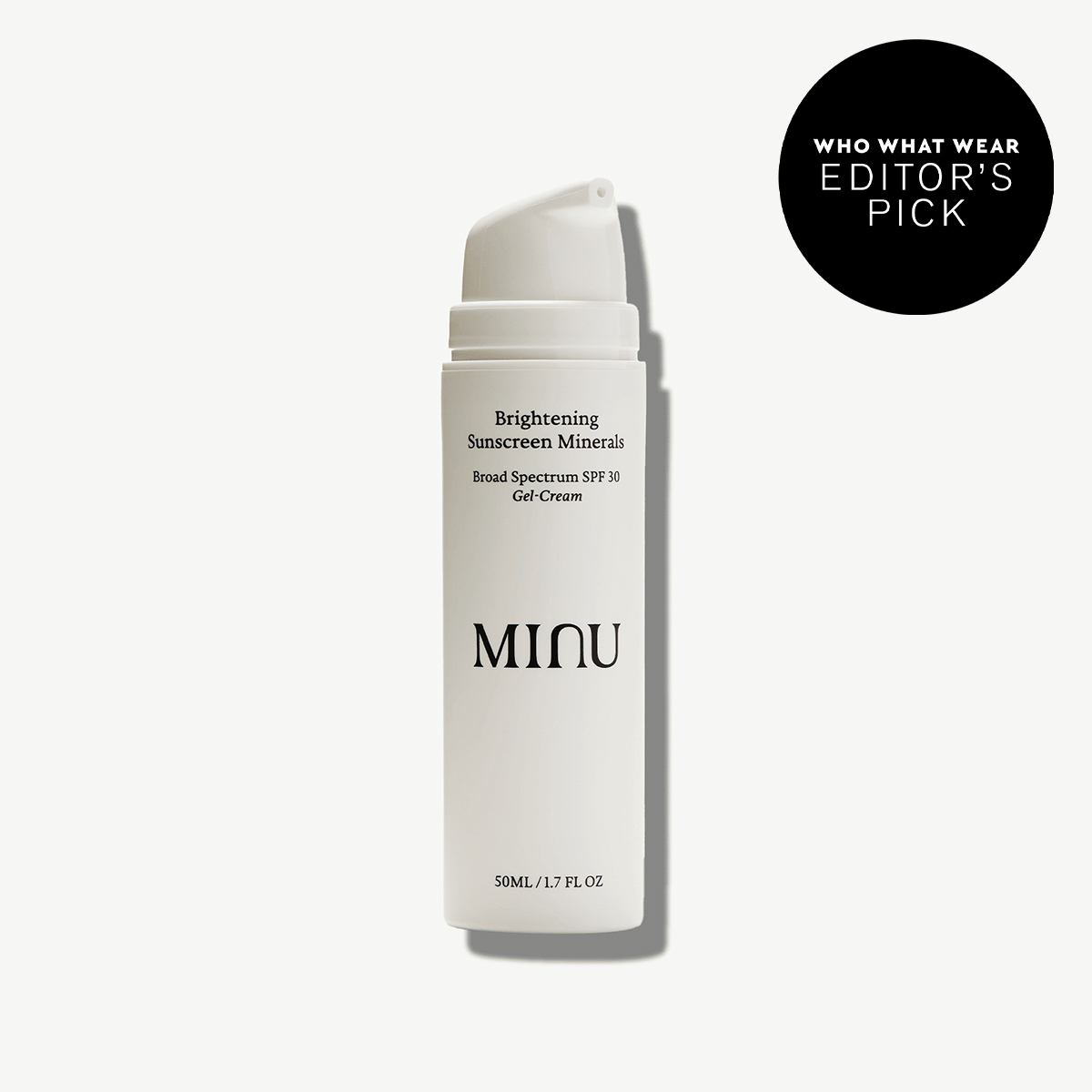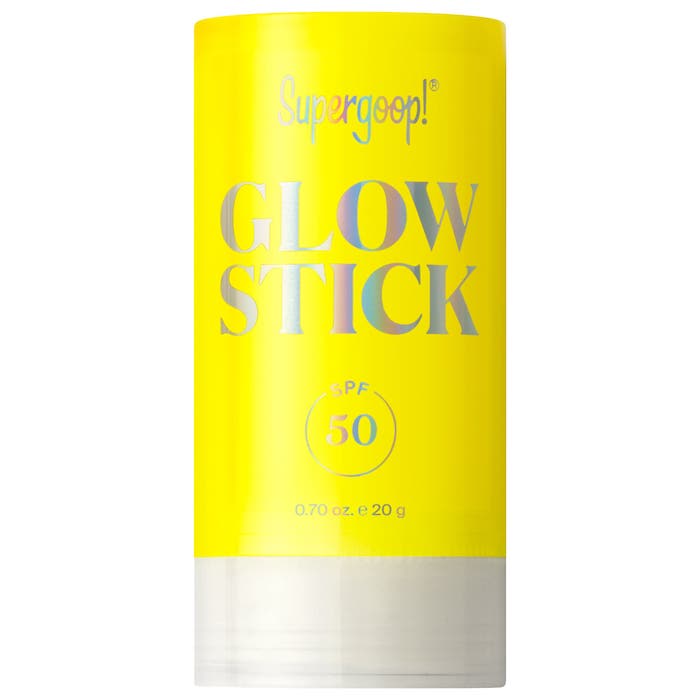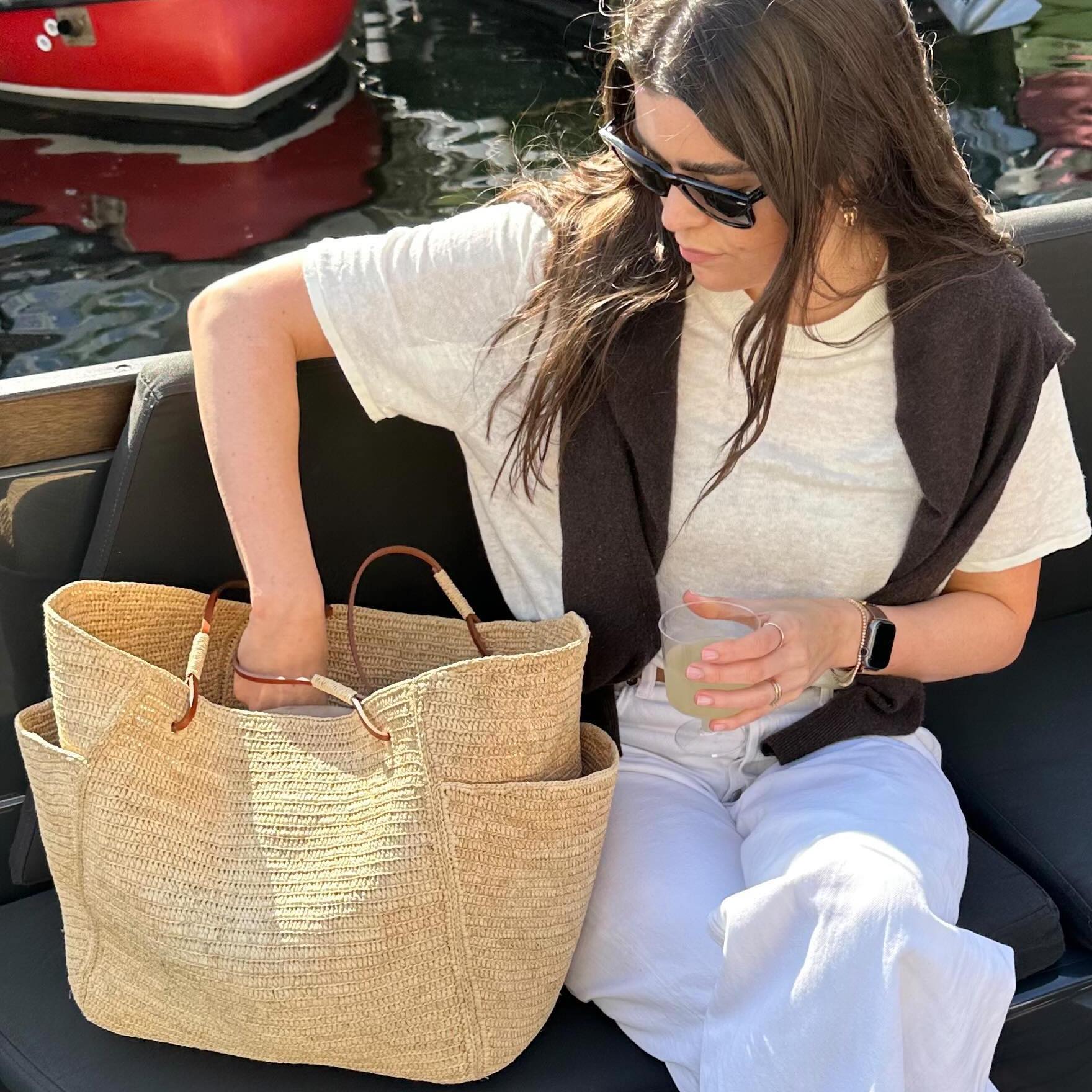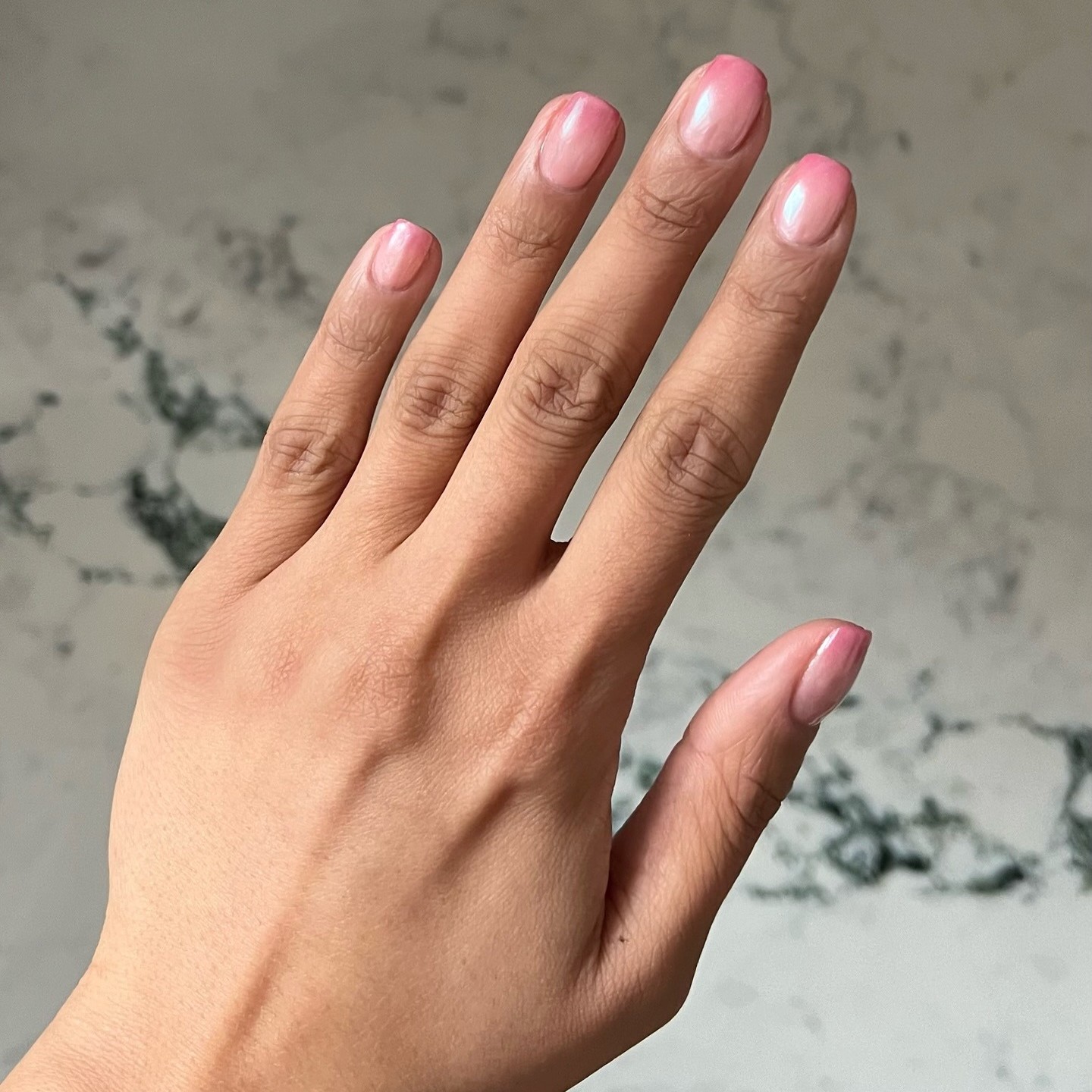I Tried This New Mineral SPF—Fast-Forward and I've Worn It Every Day for a Month
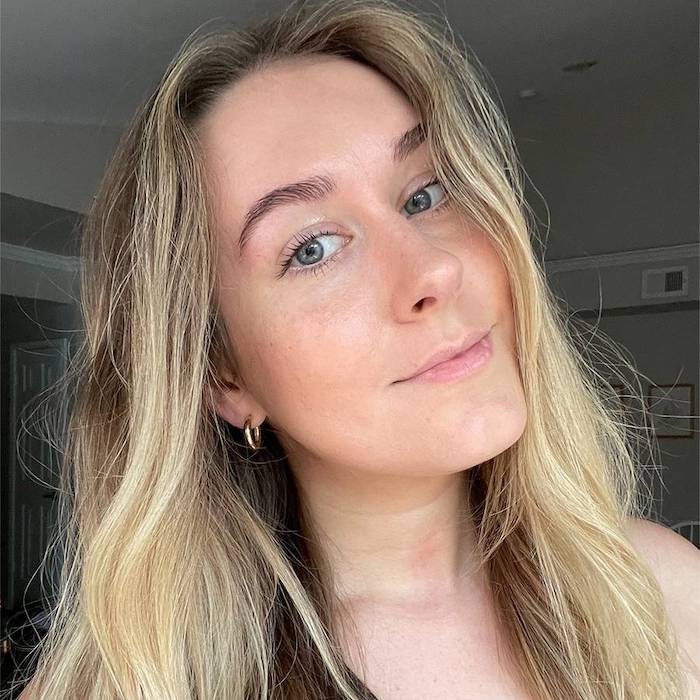
Welcome to Deep Reviews—your one-stop destination to discover the absolute best products and brands the beauty industry has to offer. The Who What Wear staffers you already know and trust will research, test, and review the market's most sought-after and buzzed-about products to see which formulas (of the hundreds up for consideration) are worth your hard-earned money and attention. You can expect honest, uncensored feedback and no-BS recommendations our hard-to-please testers endorse without reservations.
The majority of our Deep Reviews will feature our editors' honest, ultra-hot takes on entire product categories or multiple products from a particular beauty brand, but every so often, we'll sprinkle in a special single-product format called Honestly, I Love It. As the name suggests, these reviews will home in on one standout beauty formula our editors can't shut up about. This time, I'm highlighting one of my favorite sunscreens ever—Minu Brightening Sunscreen Minerals Broad Spectrum SPF 30 ($58)
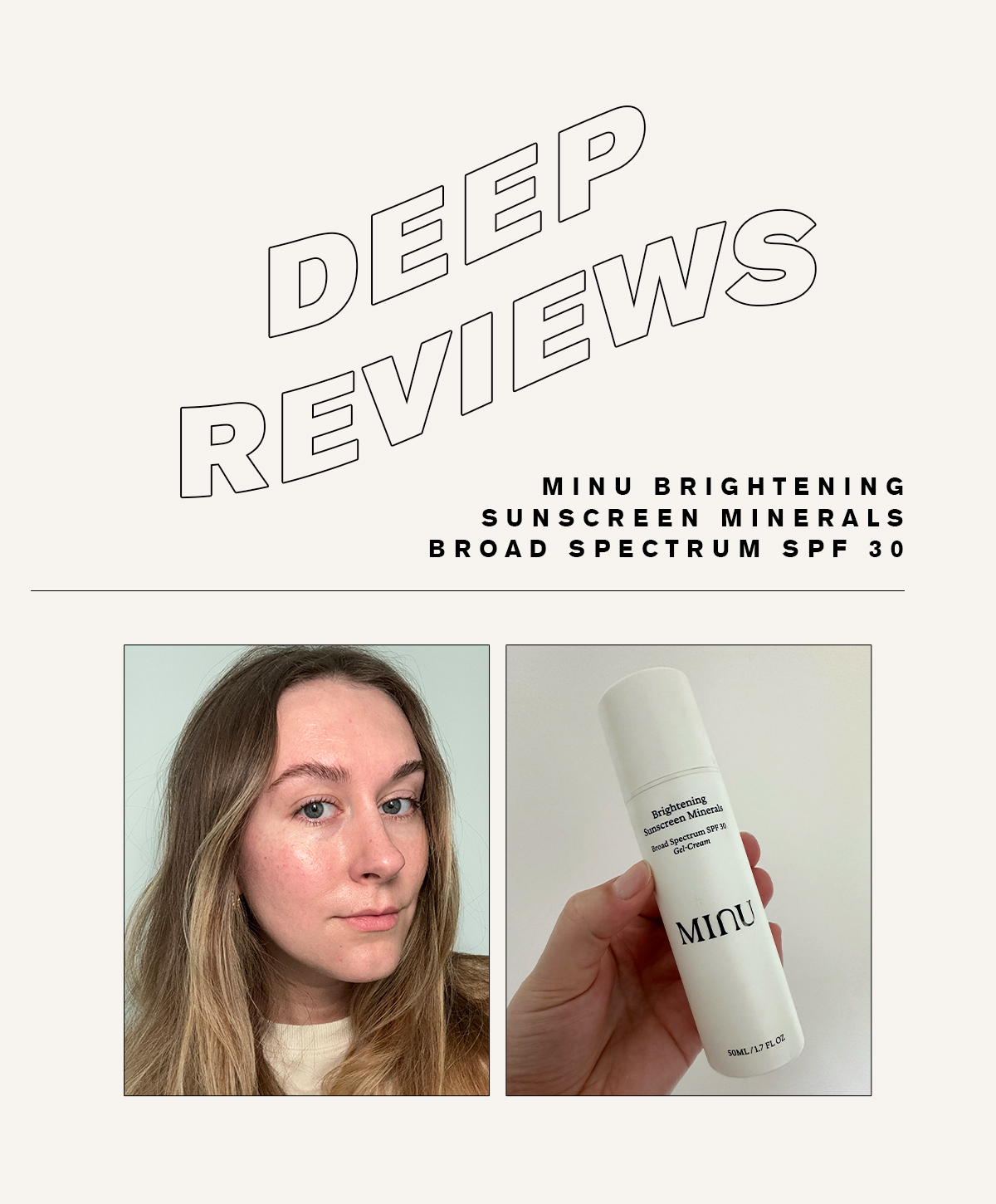
As someone who struggles with redness, sensitivity, and hyperpigmentation from past sun damage (I don't want to talk about how lackadaisical I was with sunscreen application in high school—it makes me cringe), I apply SPF every single day. If I'm spending time outside—whether going for a long walk or driving to the grocery store—I'll reapply and even toss on one of my trusty trucker hats to shield my skin. I hope that over time, this will keep my skin healthy, as well as diminish dark spots and prevent extra redness and irritation from popping up.
Sure, I have my go-to formulas. I'm a beauty editor, after all. Most of them are Korean or European sunscreens. Both geographies have access to certain UV filters that America doesn't (at least not yet). That's why I find them fresher, lighter, and generally more effective than American sunscreens.
However, there's one exception. I'm talking about a new mineral sunscreen that I happened to try about a month ago. I wore it once, and I was hooked. Since then, I've worn it every single day. That's a big deal. Like I said, I'm a beauty editor, and we're not known to stick to a single product unless it's really, really good. The best part is that it's a three-in-one product; it fulfills the function of a makeup primer and a moisturizer. So, yeah, it literally takes one step to prep, protect, and hydrate my skin. Talk about a time-saver.
Here's the product in question. It might look unassuming in its minimalist white packaging, but I promise it's so special. It offers broad-spectrum SPF 30, has a mineral-based formula, brightens the skin with a universal tint, and looks incredibly natural upon application. That's impressive considering so many mineral formulas feel heavy and chalky or leave a ghastly white cast behind. This one is different. Keep scrolling to see all the proof you need.
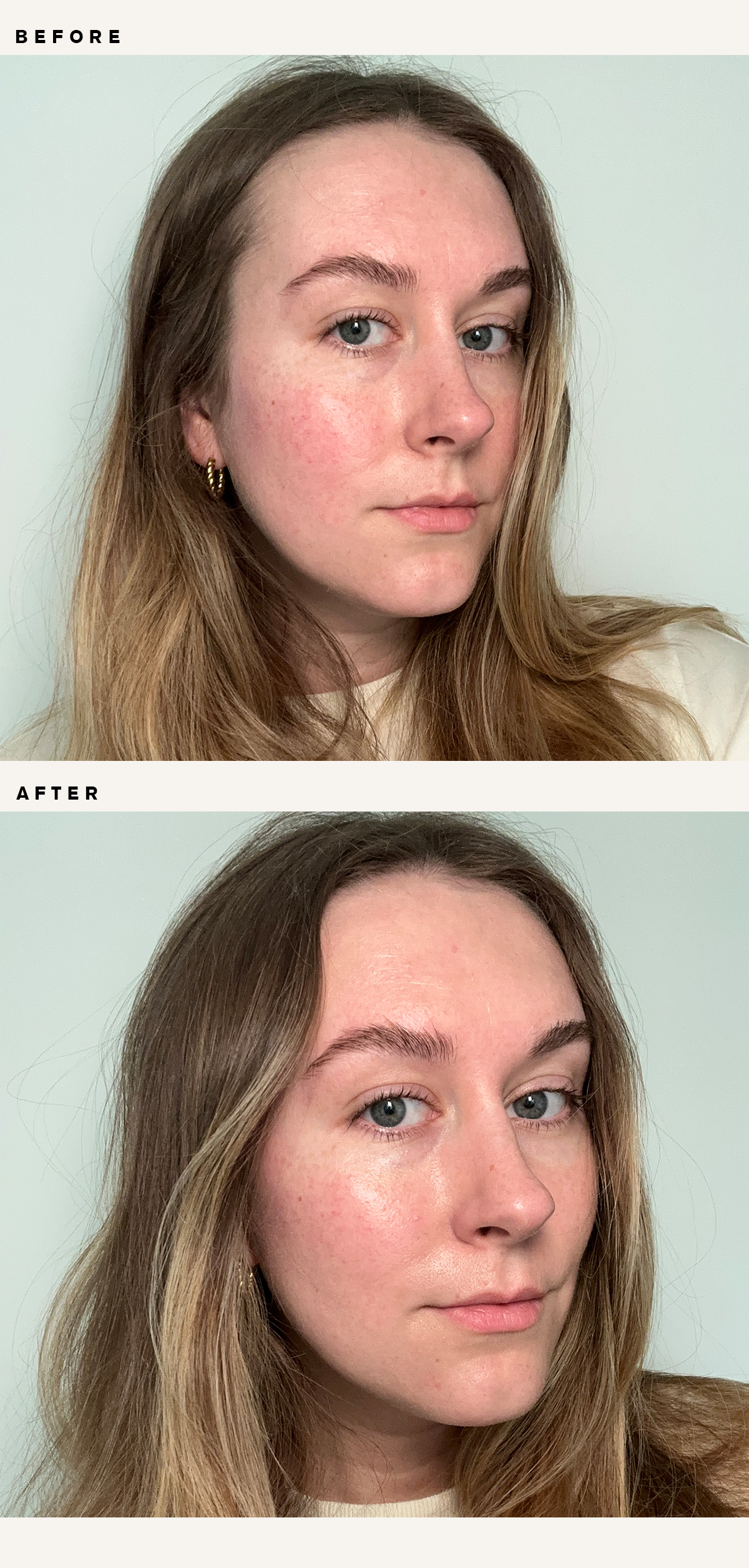
Can you tell I just woke up before taking these pictures? Bedhead or not, this sunscreen has become an integral part of my morning skincare routine because of the way it subtly, yet visibly, improves the look of my skin. As you can see in the second picture, the redness on my cheeks looks less patchy, and my scattered signs of sun damage look less visible.
Yep, that's right. This sunscreen gives my skin an immediate, visible improvement, and it's all thanks to its universal tint and unique, gel-cream formula. The former is what subtly perfects the look of my skin. The latter is what makes it feel so fresh, lightweight, and natural.
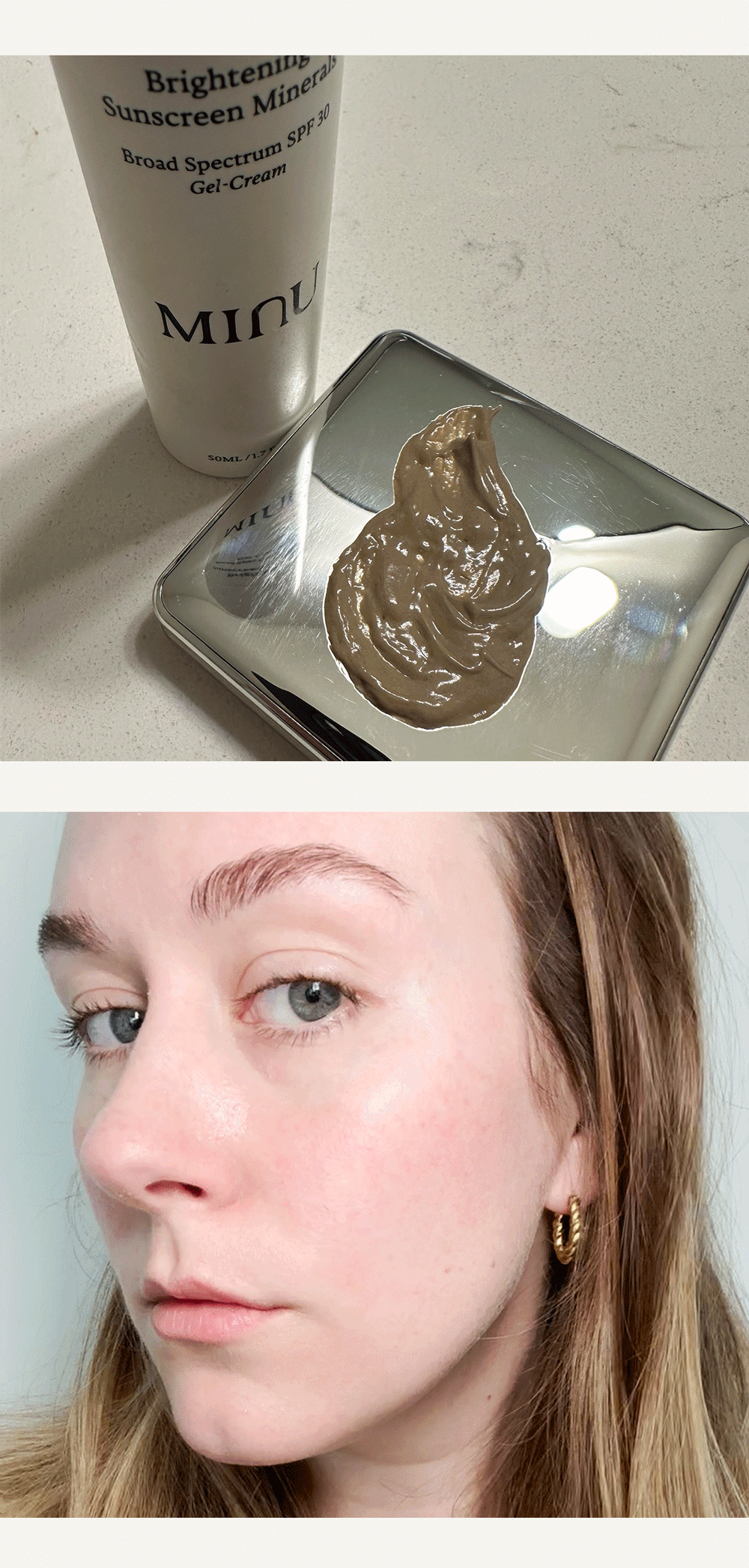
The first time I tried this sunscreen, I was surprised to see a light-brown, gel-like texture come out of the pump bottle. Scared that it would be too dark for my light skin tone, I applied it hesitantly and sparingly. I quickly noticed it blended easily into my skin, making it look better than it did before. (Again, this is shocking for a mineral sunscreen.) I applied a few more pumps until my entire face and neck were slathered in the stuff, and there was no sign of sunscreen at all—just bright, glowing skin.
I could instantly see how this sunscreen doubles as a makeup primer (it has a nice makeup-gripping slip to it) and a moisturizer (it feels hydrating on my skin). I've worn it with and without makeup over these last 30 days, and I'm impressed either way. I love a good three-in-one skincare product. And if you look at it that way, $58 isn't all that expensive for this product—not if you can get away with saving on primer and morning moisturizer.
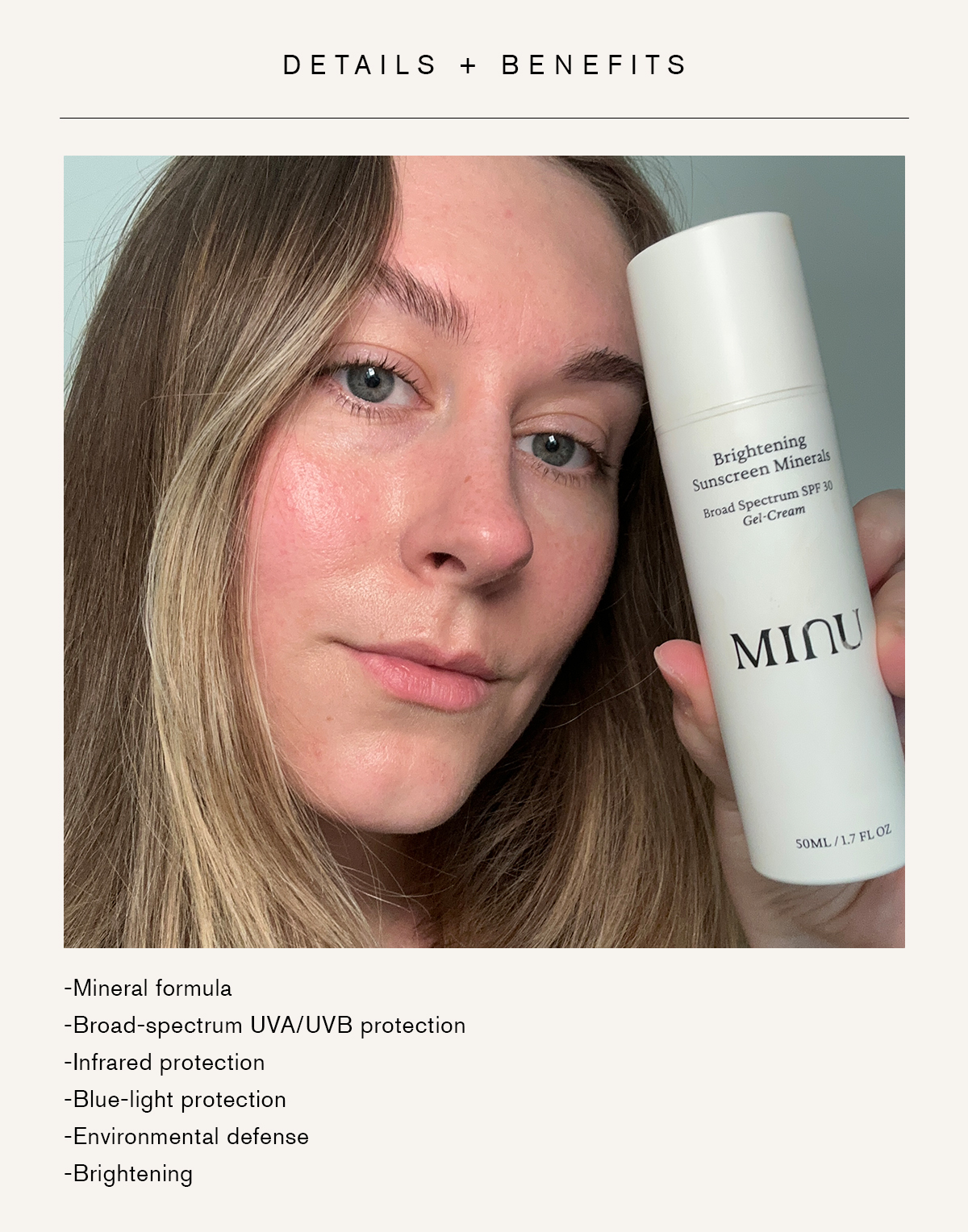
At the end of the day, though, this product primarily functions as a sunscreen, and it's incredibly important that it does so effectively. Luckily, I have no concerns. It offers broad-spectrum SPF 30, so it protects from both UVA and UVB rays. It's also PA++++, which is a rating system used primarily in Asian countries to designate a formula that has a high degree of UVA protection. That means it meets the highest standard of global sun protection ratings in the U.S., Europe, and Asia.
It even protects against infrared light, blue light, and pollution, which makes me feel slightly better about sitting in front of a giant computer screen for eight hours a day. It's also suitable for all skin types and stays water-resistant for up to 40 minutes. Did I mention it contains no sulfates, parabens, dyes, or synthetic colorants and is oil-free, fragrance-free, and hypoallergenic? It's the real deal.
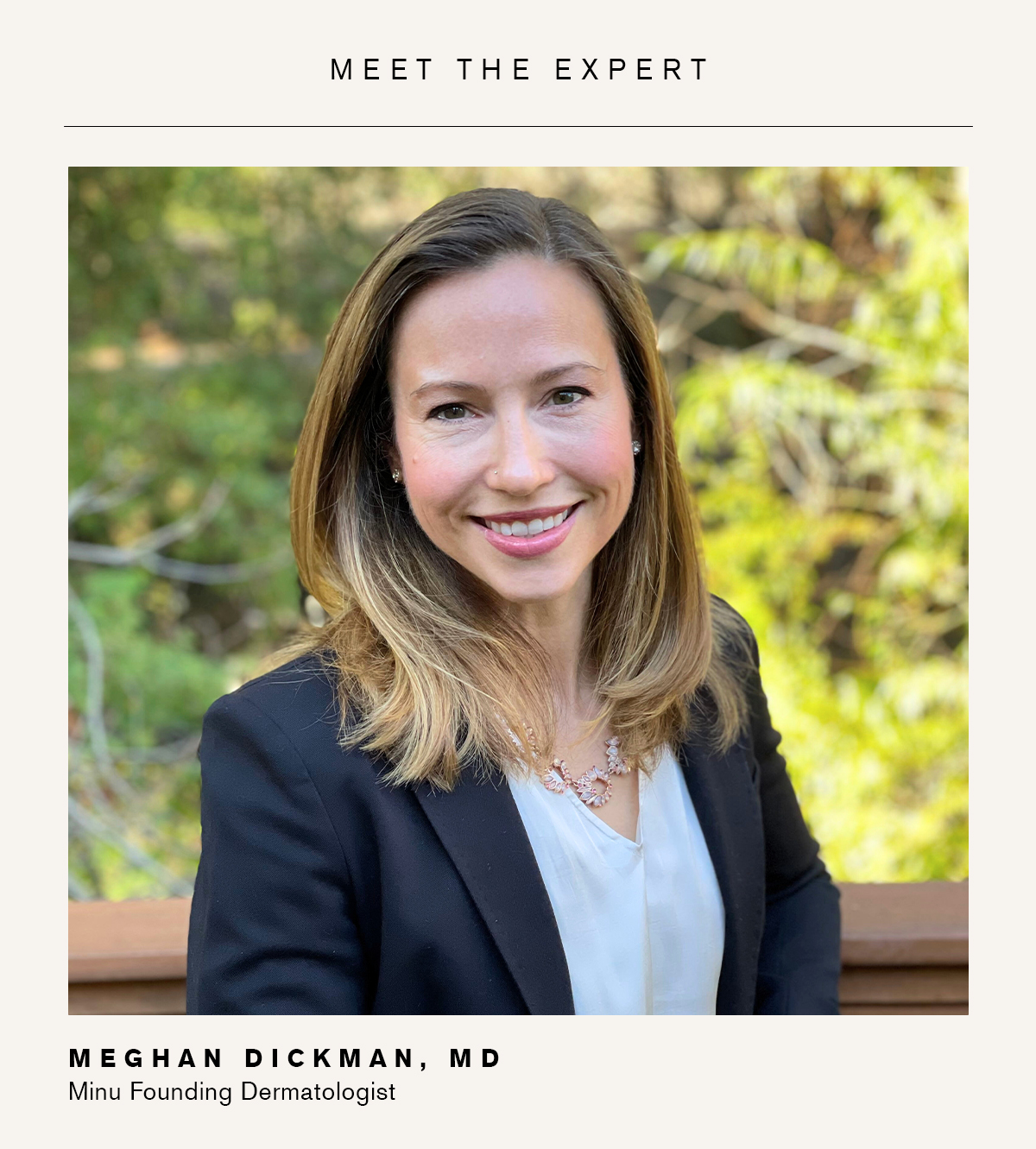
This sunscreen has broad-spectrum UVA/UVB protection as well as PA++++. Can you explain what that means?
There are multiple wavelengths of ultraviolet radiation from the sun. UV rays in the UVB spectrum are shorter and primarily contribute to sunburn and DNA damage, which leads to skin cancer. Longer-wavelength UVA radiation contributes to photoaging, such as brown spots, wrinkling, and sallowing of the skin. Broad-spectrum is a U.S. labeling system issued by the FDA that indicates protection against both UVB and UVA radiation. The broad-spectrum designation is binary—a sunscreen either is or isn't broad spectrum. However, the PA+ system, which is mostly used in Asia, is more nuanced. It indicates the degree of UVA protection because the number of plus signs represents how robustly a sunscreen protects against UVA rays and goes from + (signifying some UVA protection) to ++++ (signifying extremely high UVA protection). In addition, in the EU, broad-spectrum protection is determined by the ratio of UVA to UVB protection, with a minimum UVA/SPF ratio of 1/3. Minu's Brightening Sunscreen Minerals achieves the highest standards of global broad-spectrum protection ratings in the U.S., Europe, and Asia, protecting against UVA, UVB, infrared, pollution, and blue light, with a PA++++ rating and meeting the UVA/SPF ratio of 1/3.
It also has blue light and infrared protection. Can you explain how both of these things can be harmful to the skin?
Both blue light and infrared radiation can contribute to oxidative damage of the skin, through accumulation of free radicals. This can lead to signs of skin aging like hyperpigmentation and a dull complexion.
Can you tell me more about the brightening effect of this sunscreen?
The formula has a beautiful but subtle brightening effect that gives a lit-from-within glow. At the same time, it's not heavy enough to mask the natural variation and uniqueness of one's complexion. It's a really elegant and quite unique finish. How we achieved this effect is due to our light-diffusing technology. It is made up of specifically selected minerals (iron oxide, ethically sourced mica) whose unique shape reflects, refracts, and evenly diffuses light, helping to even skin tone, blur wrinkles, and reduce the appearance of fine lines, age spots, and other skin imperfections when applied to the skin.
It's uncommon for a mineral sunscreen to look so natural on the skin. Can you tell me why that is and what makes Minu's formula different?
Mineral sunscreens have long struggled with a couple of aspects that have been troublesome to consumers. Number one, they may feel thicker or goopier on the skin, which can make application cumbersome. Second, the zinc oxide component can leave a white cast that is noticeable on any skin type but particularly problematic with darker skin tones. With decades of experience, notably creating and bringing to market the core suncare technologies at Neutrogena, our team was uniquely positioned to reinvent sunscreen for the modern discerning consumer. We spent years developing Minu's proprietary technology behind this product, called Mineral Superblend. Guided by deep scientific rigor, we meticulously select
only the most efficacious and skin-loving minerals from around the world. Our formula is a delicate fusion of the finest few minerals with plant extracts, vitamins, and peptides, acting as a superfood to protect, illuminate, and recharge:
-Protect: Carefully selected zinc and titanium create a tightly woven invisible mesh, providing more durable, superior protection.
-Illuminate: Pigments of iron oxide and mica instantly brighten, smooth, and even out all skin tones, blurring fine lines and reducing the visibility of spots.
-Recharge: Antioxidant and anti-irritant properties in echinacea, ginger, allantoin, bisabolol, and vitamins B3 (niacinamide), B5, and E soothe skin, reduce redness, and shield from damage caused by pollution, blue light, and infrared.
Finally, how much sunscreen should we be wearing on our faces and necks every day?
A teaspoon of sunscreen is typically enough to provide a thin layer to the face and neck. This translates to roughly a nickel-size dollop of sunscreen. The key is to reapply every two hours to ensure you are protected throughout the entire day.
Shop 5 More Sunscreens I Love
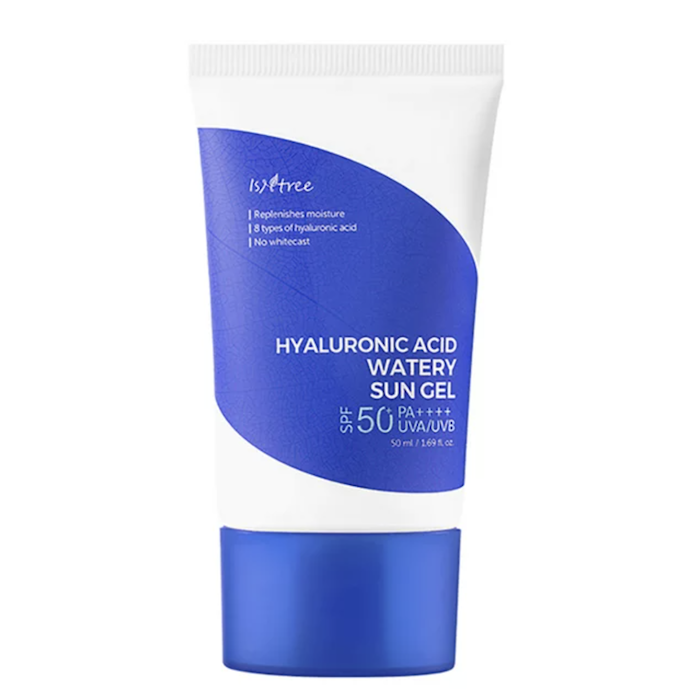
Here's another one of my all-time favorite sunscreens.
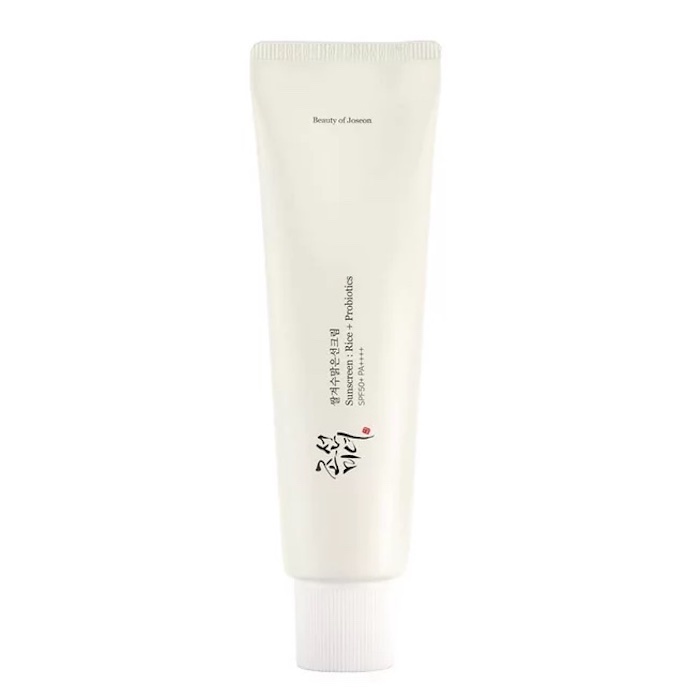
I discovered this Korean sunscreen on TiKTok. It's so good.
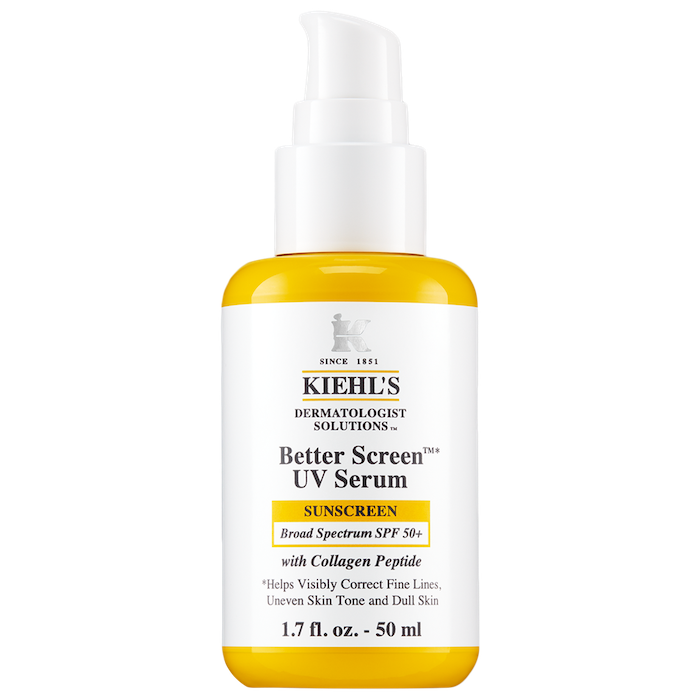
This innovative product is one part serum and one part SPF.
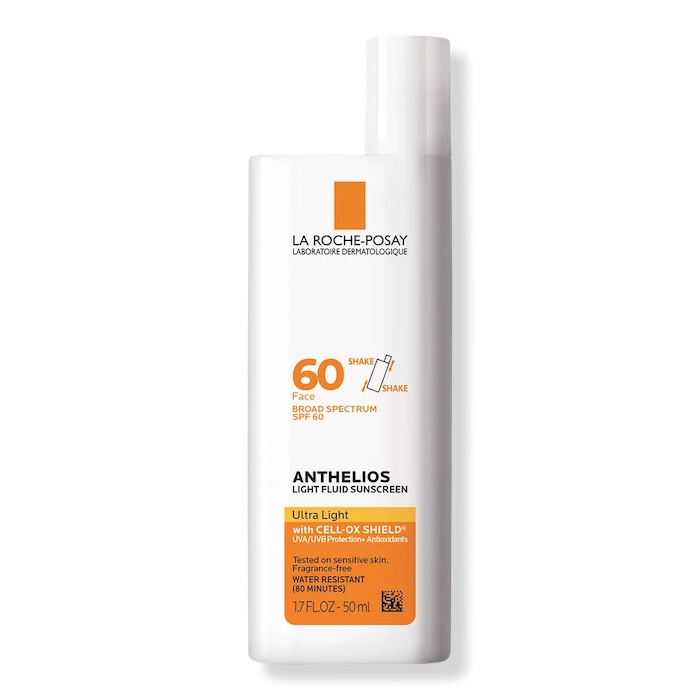
This sunscreen is gentle on my sensitive skin.

Kaitlyn McLintock is a Beauty Editor at Who What Wear. She has 10 years of experience in the editorial industry, having previously written for other industry-leading publications, like Byrdie, InStyle, The Zoe Report, Bustle, and others. She covers all things beauty and wellness-related, but she has a special passion for creating skincare content (whether that's writing about an innovative in-office treatment, researching the benefits of a certain ingredient, or testing the latest and greatest at-home skin device). Having lived in Los Angeles, California, and Austin, Texas, she has since relocated back to her home state, Michigan. When she's not writing, researching, or testing beauty products, she's working through an ever-growing book collection or swimming in the Great Lakes.
-
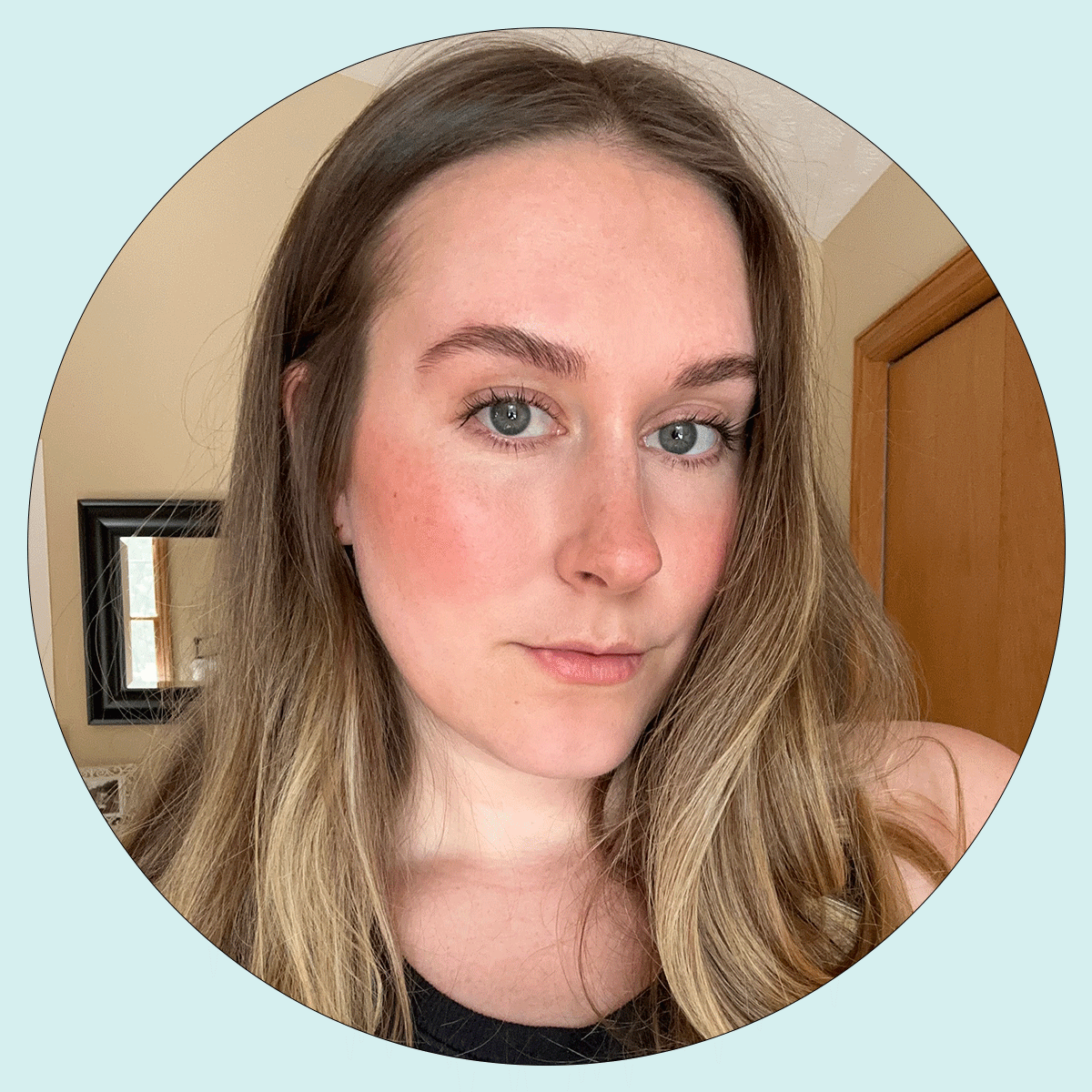 3 People Texted Me to Ask What They Should Buy Before Sephora's Sale Ends—Here's My Short List
3 People Texted Me to Ask What They Should Buy Before Sephora's Sale Ends—Here's My Short ListMy top 10 recommendations.
By Kaitlyn McLintock
-
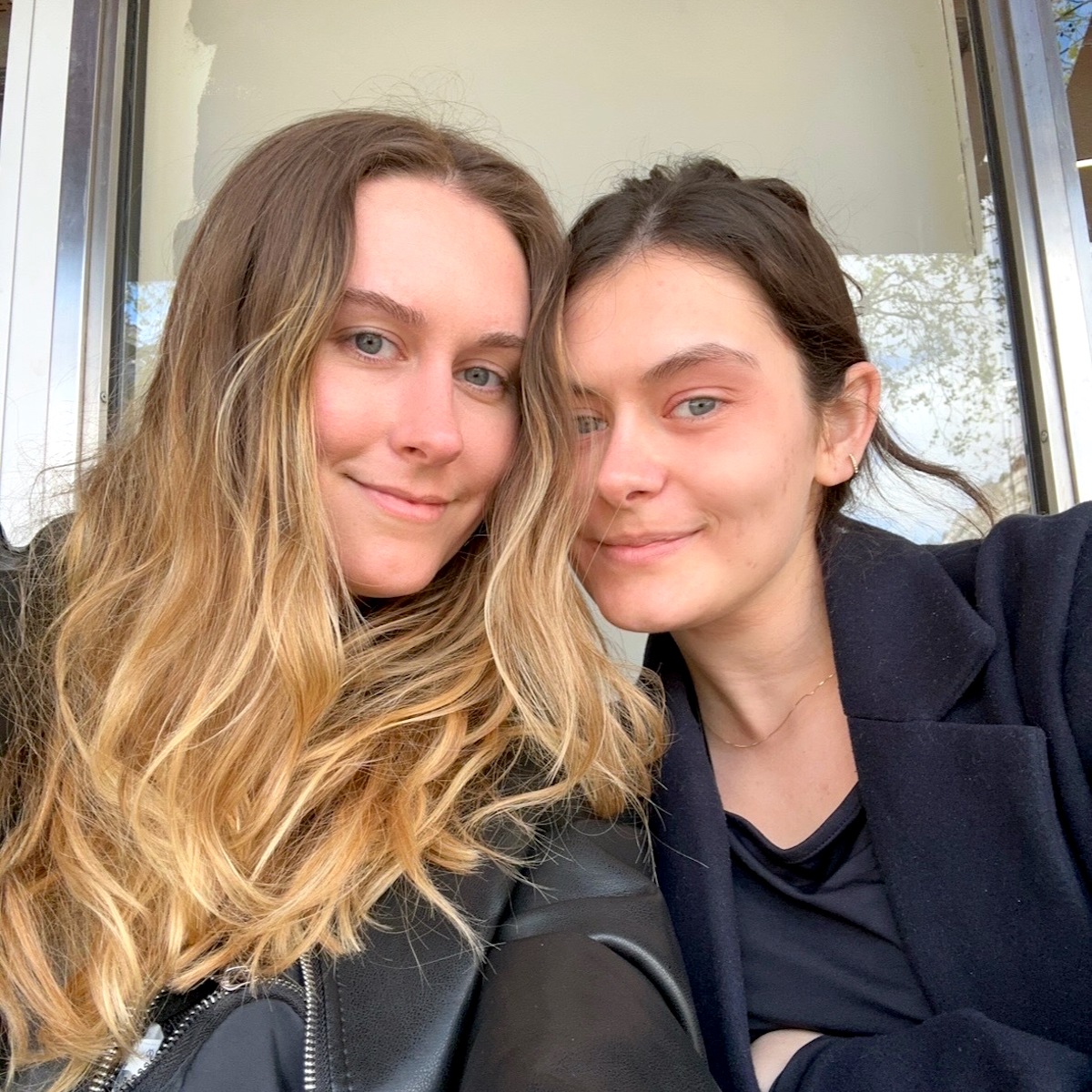 My Sister and I Have Opposite Skin Types, But These Products *Magically* Work for Both of Us
My Sister and I Have Opposite Skin Types, But These Products *Magically* Work for Both of UsThese are our "unicorn" products.
By Kaitlyn McLintock
-
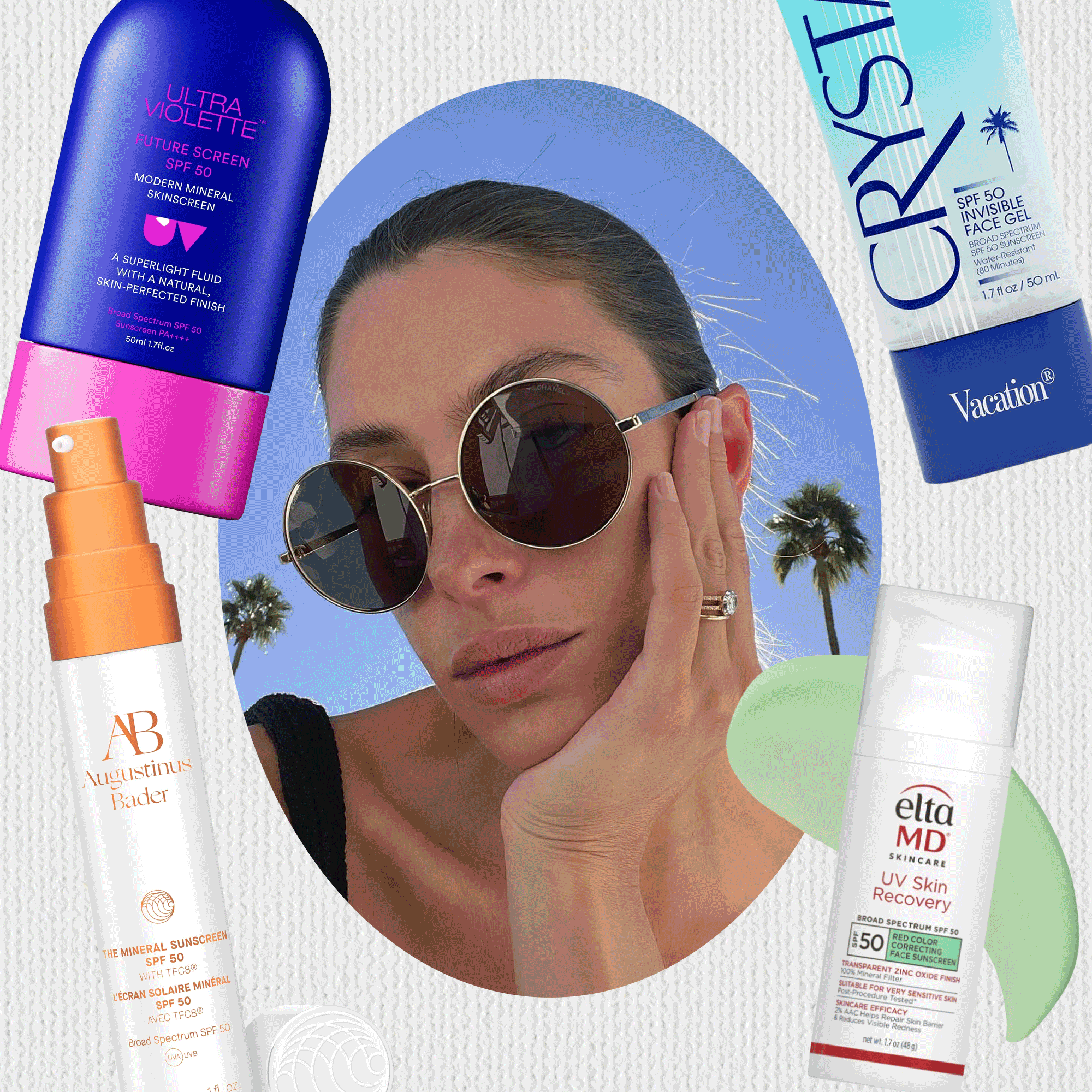 It's About to Be Hot and Sunny—TG—So Allow Me to Introduce You to 2025's Best New Sunscreens
It's About to Be Hot and Sunny—TG—So Allow Me to Introduce You to 2025's Best New SunscreensDon't settle for a subpar SPF.
By Kaitlyn McLintock
-
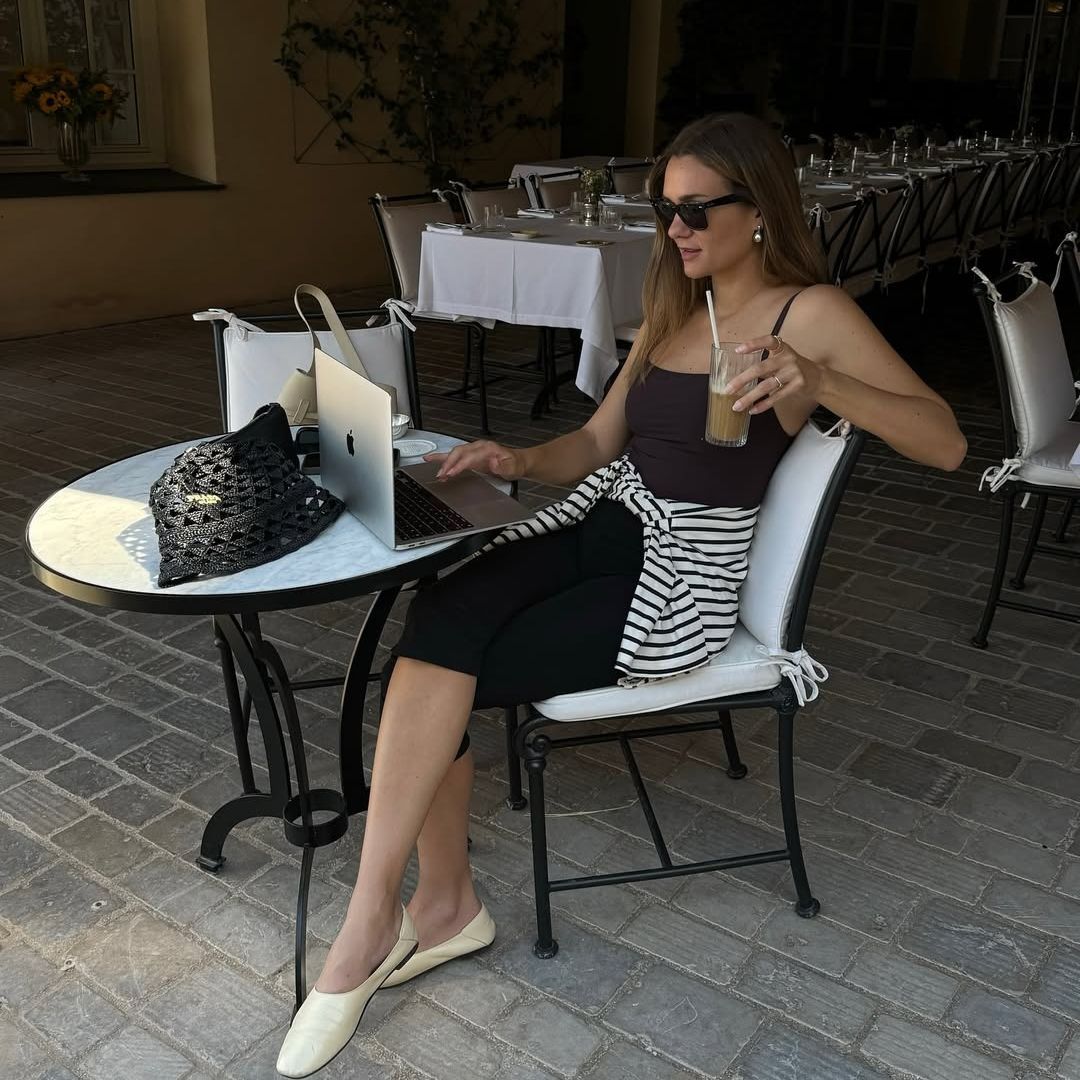 I Polled Our Editor Slack Channel—10 French Beauty Products We’d Buy From Ulta’s Spring Sale
I Polled Our Editor Slack Channel—10 French Beauty Products We’d Buy From Ulta’s Spring SaleBy Alyssa Brascia
-
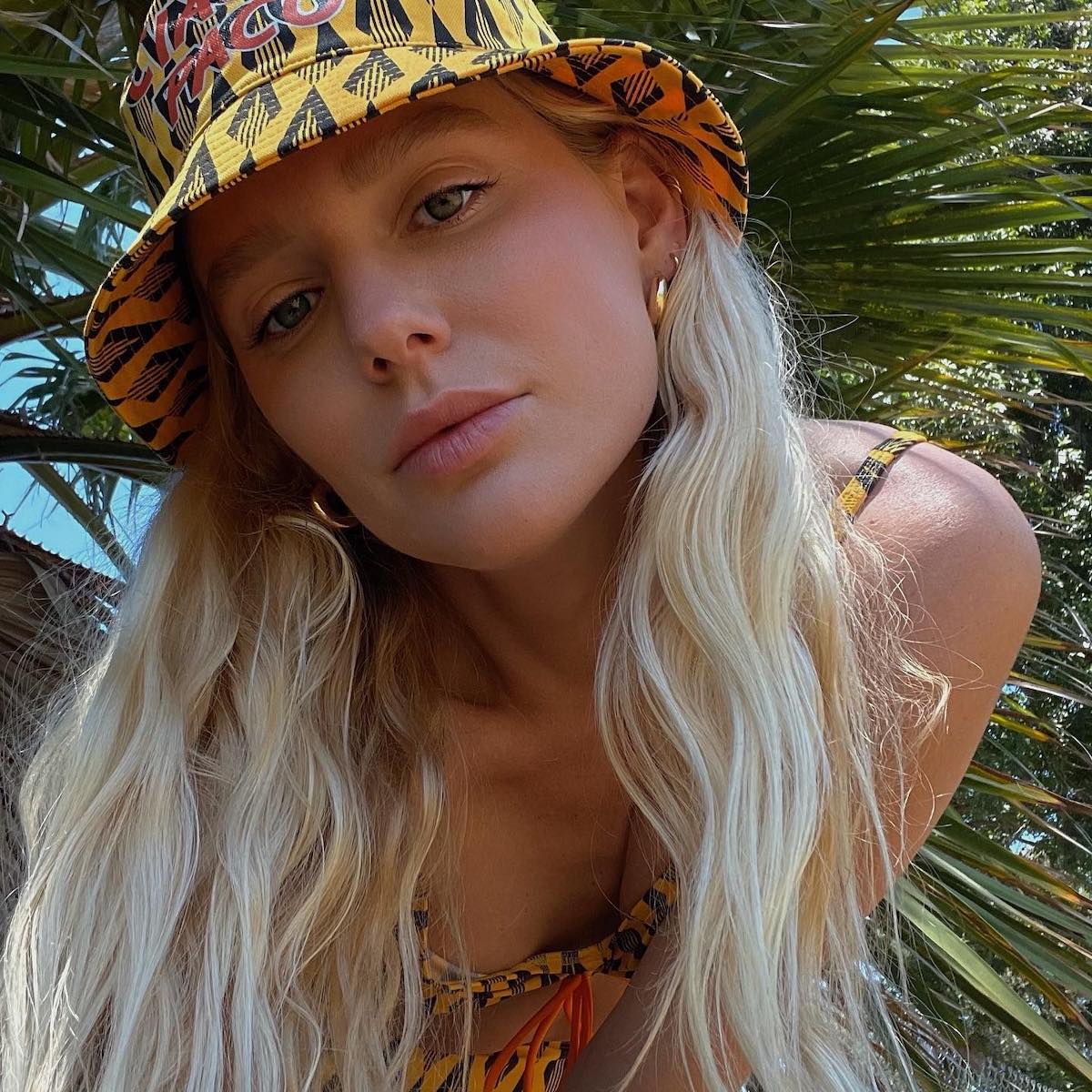 I Went to Ulta to Prep for Summer Vacation—Here's My Complete Beauty and Wellness Haul
I Went to Ulta to Prep for Summer Vacation—Here's My Complete Beauty and Wellness HaulTwenty-two items and an OOO request.
By Kaitlyn McLintock
-
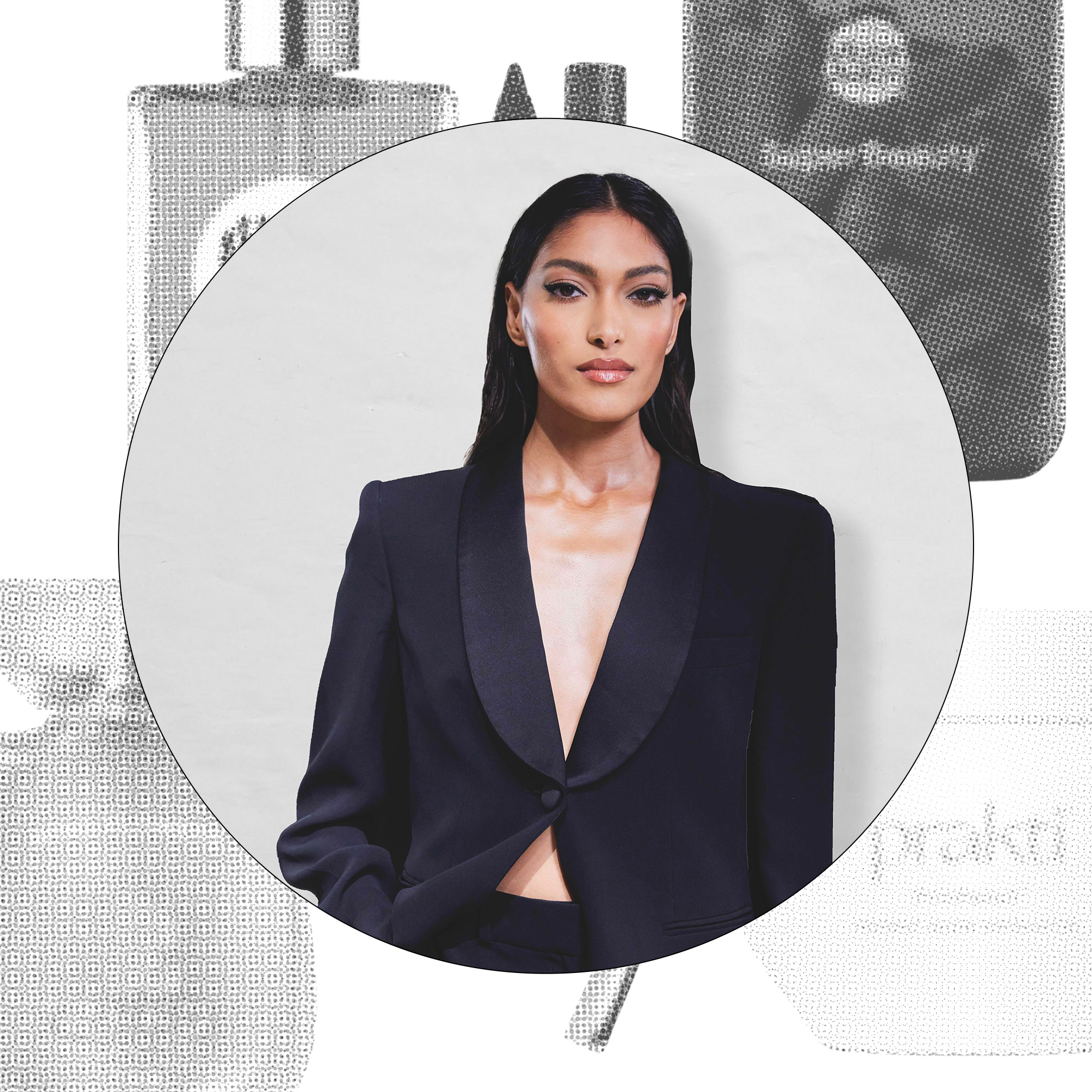 Model Pritika Swarup Has an Angel's Complexion, so I Asked for All Her Skin and Makeup Secrets
Model Pritika Swarup Has an Angel's Complexion, so I Asked for All Her Skin and Makeup SecretsHer must-haves for "runway-level radiance."
By Jamie Schneider
-
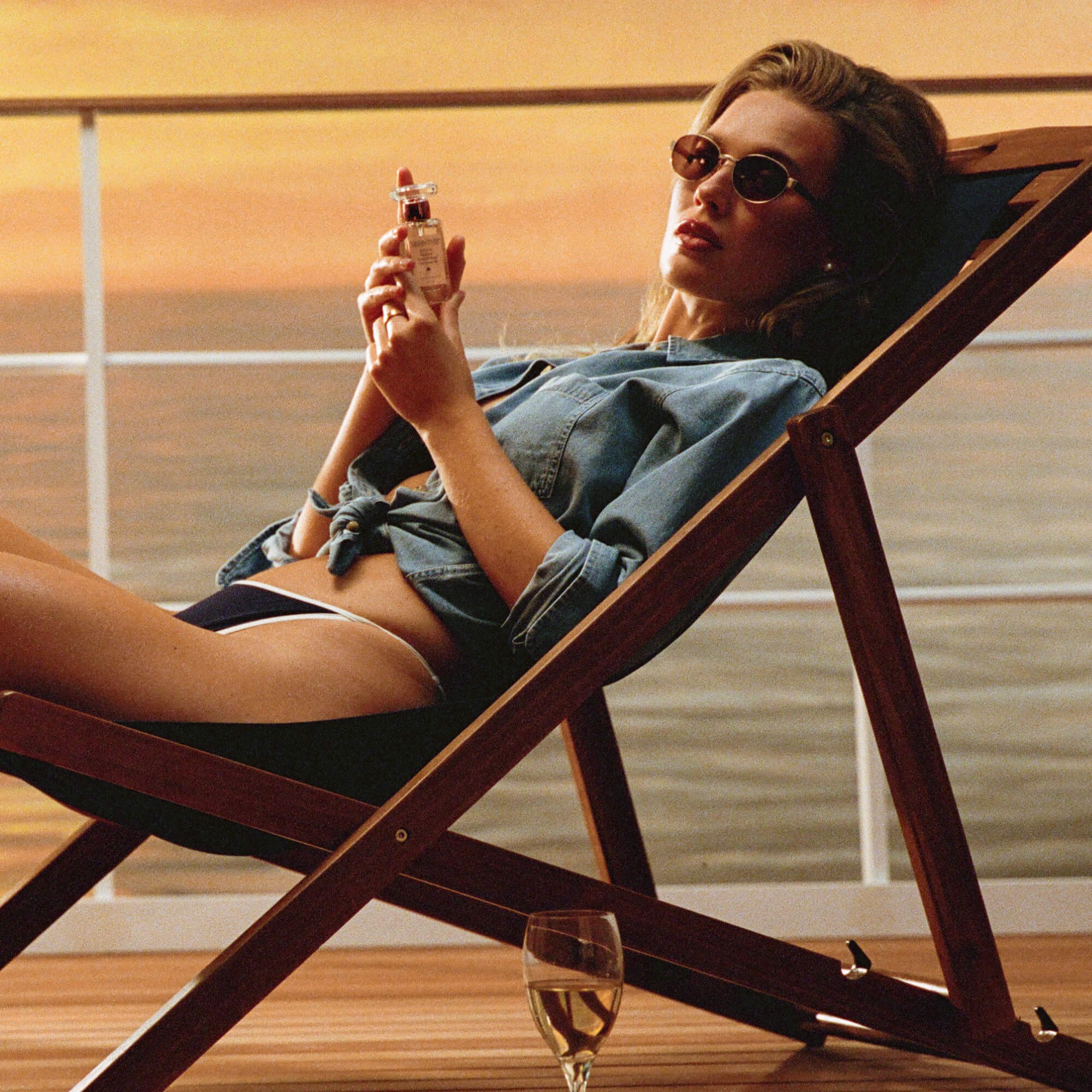 This SPF Smells So Good It Had a 1700-Person Waiting List—Now There's a White Lotus–Coded Perfume to Match
This SPF Smells So Good It Had a 1700-Person Waiting List—Now There's a White Lotus–Coded Perfume to MatchCrisp, indulgent, and yacht-inspired.
By Jamie Schneider
-
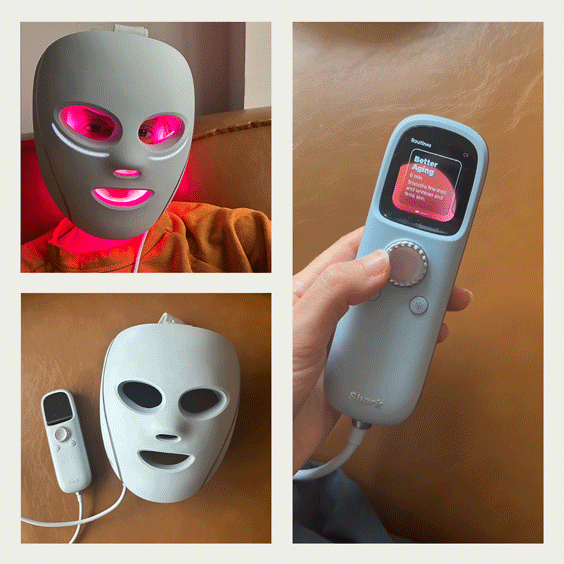 I've Tested $2850 Worth of LED Masks—Shark's New Model Is the One I'm Recommending to Friends
I've Tested $2850 Worth of LED Masks—Shark's New Model Is the One I'm Recommending to FriendsMy full review after wearing it for 67 days.
By Jamie Schneider
